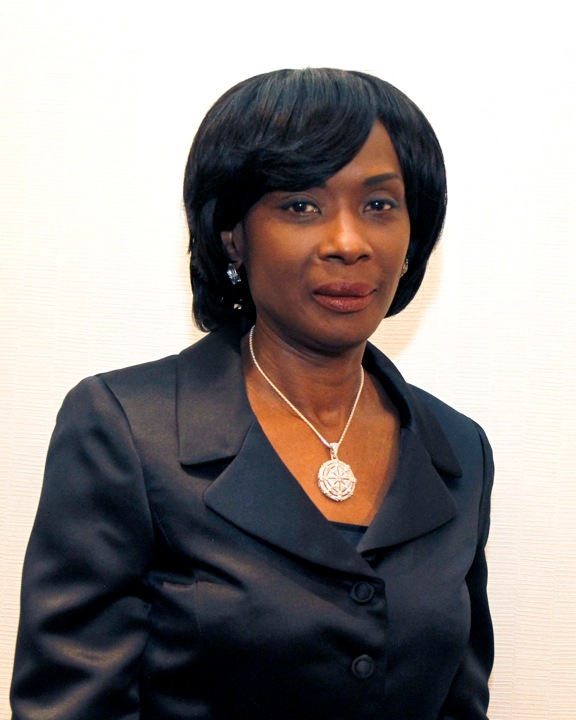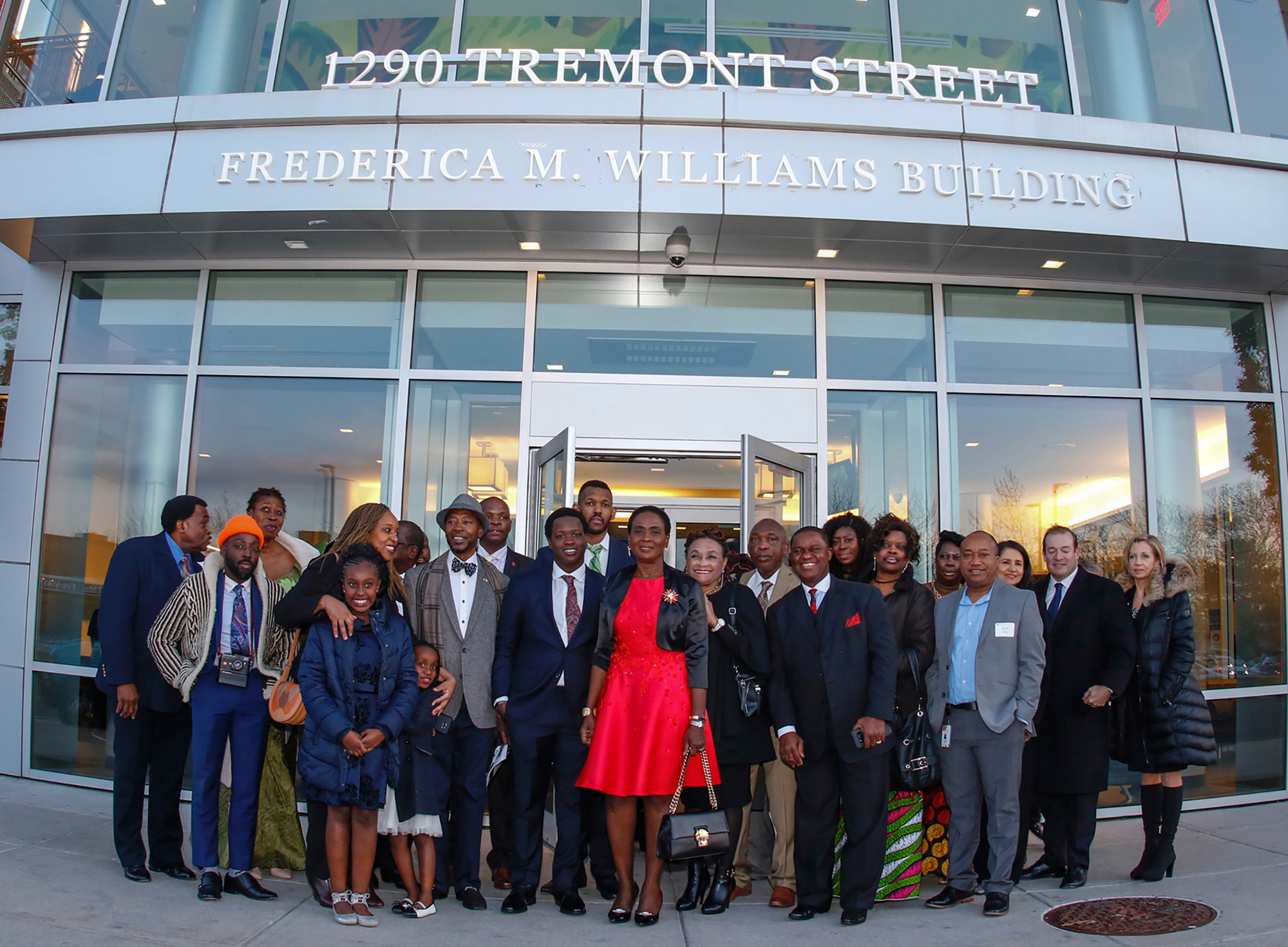More than three decades later, the Sierra Leone native is president and CEO of an organization that caters not to men in suits, but to greater Boston’s most vulnerable communities. And in her 18 years at the helm of the Whittier Street Health Center in Roxbury, Williams’ impact has been monumental.

Her work at Whittier has earned her the 2020 Dean Michael Shinagel Award for Service to Others, presented by the Harvard Extension Alumni Association. Williams says she isn’t in it for the awards but is honored to receive one named for Dean Shinagel, a fellow immigrant.
“The HEAA played such a critical foundational role in my life, in as far as my experiences in Boston,” Williams said. “But to receive an award named after [Shinagel], who has a life of dedication to others, and to be able to share my life experiences, it means a lot.”
Growing up in Sierra Leone with a businessman father and entrepreneur mother, Williams got a firsthand view of what it looks like to work toward both business success and humanitarianism—not as opposing forces, but complementary to one another.
She completed her undergraduate degree and moved to Boston, working in banking while raising a young family. Williams initially got into healthcare via a recruiter and worked for a pharmaceutical company and a hospital.
Four years into her time in Boston, Williams met a former schoolmate of her father who introduced her to Harvard Extension School.
“I said to him, it’s wonderful that I have this degree from England, but I need to find a way to integrate into the American educational system,” Williams said. “And he said to me the Harvard Extension School is a perfect place for you to start.”
“It was a good way for me to get to the next level of graduate education. It was a challenging time in my life, because I had two young children, and I was also working full time and going to school at night, living in the South Shore, and going to school in Cambridge.”
“But my parents taught me to invest in myself, that if I invest, it will yield the results. And I also got to make good friendships.”
At Harvard Extension, Williams met people who were also looking to upskill while maintaining careers and families. She also had the opportunity to study business writing, accounting, and financial management—skills that would serve her well later on.
“Little did I know that I would be following in the path of Michael Shinagel,” Williams said.
After completing her graduate certificate at Harvard Extension, Williams went on to earn an MBA from Anna Maria College, a Catholic institution in Massachusetts.
Her faith, work ethic, and her mission—helping “the least, the lost, and the last”—would eventually lead Williams to Whittier Street Health Services.
“There was an opportunity for me to realize my vision of addressing health disparities, social justice, and economic inequities,” said Williams.
“Our health is our wealth. If you don’t have access to resources, you cannot take care of your health. If you’re homeless, you cannot take care of your health. If you are suffering from food insecurity, you cannot take care of your health.”
Whittier was in financial crisis when Williams joined. As a self-proclaimed risk-taker, she welcomed the chance to make a substantial impact on an area of the city historically neglected by public services due to its racial demographics.
“I thought, this is my opportunity to really focus on immigrants and refugee health while also addressing the health issues of those who were marginalized and vulnerable.”
Her aim in the beginning was to take Whittier from a basic health care facility to a provider of the full continuum of holistic health. Her father, who died of a preventable disease, was once again an inspiration.
Williams worked with the city board and mayor to build social services, including a prison release program, mental health care, and youth development. Now, Whittier has seen growth and improvement in all aspects.
“But most importantly, we’re beginning to see the improvement in patients’ clinical outcomes and their social outcomes,” Williams said.
In 2018, the board at Whittier named its six-story, state-of-the-art facility with city views the Frederica M. Williams Building. Even with her legacy cemented and immortalized, Williams still sees work yet to be done.
With the pandemic disproportionately affecting unhoused and underserved individuals, Whittier has implemented satellite and mobile clinics to expand its reach and help people where they are.
“We’re going to the places where the homeless congregate. We’re going to public housing. We’re going to places designated as hot spots by the city, and meeting people where they are, providing testing, linking them to care, keeping them healthy.”
This relentless dedication to her mission has guided Williams all along. It’s impossible to know what’s next, but her advice to future generations is to stay true and stay focused.
“Explore everything. Do not put any limitations on yourself. When I was [at Harvard Extension], I did not know that my trajectory was to be a CEO of a non-profit. I just knew that I wanted to be my best self, wherever I was.”

